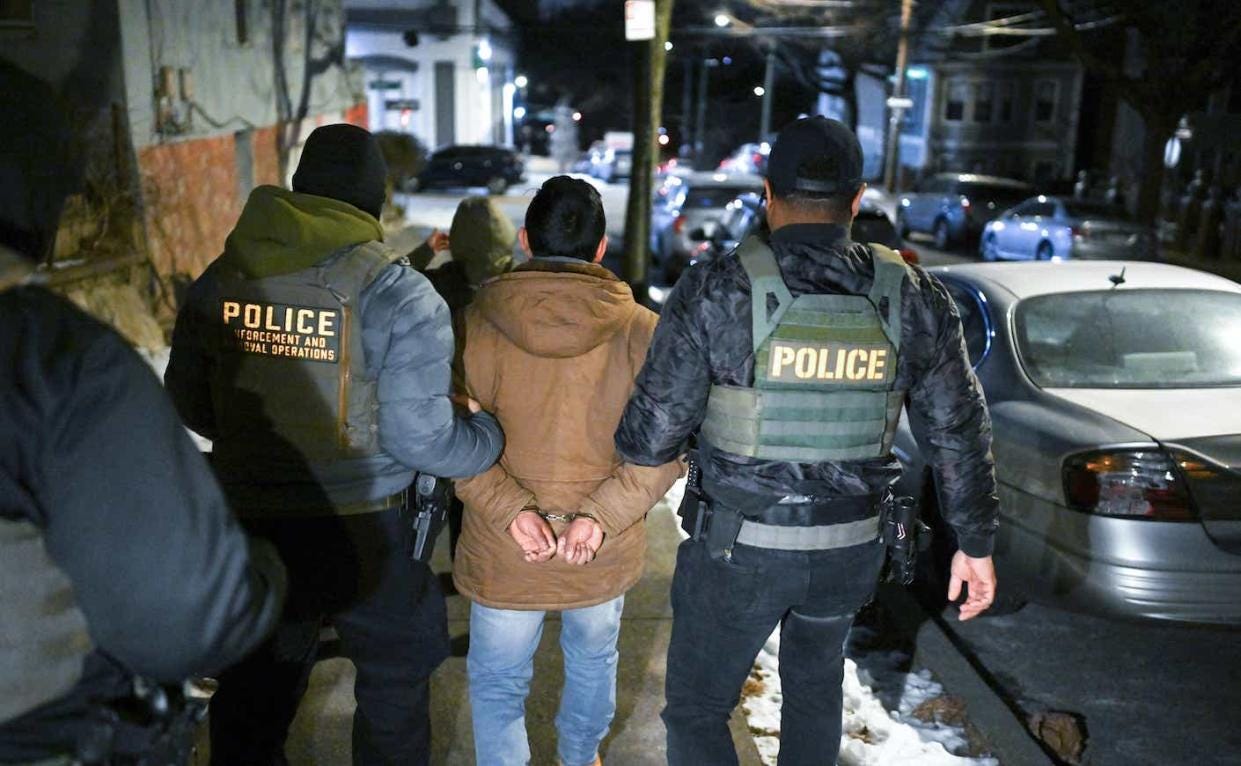The concept of "Judenfrei" - a term used in Nazi Germany to describe areas or communities that were deemed "free of Jews" - serves as a stark reminder of the dangers of targeted persecution and exclusion. The eerie similarities between this ideology and the recent actions taken by Immigration and Customs Enforcement (ICE) under the Trump administration warrant closer examination.
The 2011 directive, which prohibited ICE and Customs and Border Patrol officers from making arrests in "sensitive areas" such as schools, churches, hospitals, and courthouses, was revoked by the Trump administration. This move has enabled ICE to target these areas once again, leaving many to wonder about the potential consequences for immigrant communities.
The Department of Homeland Security's justification for this policy shift - that it would allow law enforcement to use "common sense" in making arrests and catch "criminal aliens" who had been hiding in these sensitive areas - raises concerns about the blurring of lines between legitimate law enforcement activities and targeted persecution. By permitting ICE to conduct immigration raids near courthouses, the administration may be creating an environment where individuals are more likely to be detained or deported based on their immigration status rather than any actual wrongdoing.
This approach has drawn parallels with the Judenfrei ideology, where Jewish people were systematically targeted and excluded from society. While the context and motivations may differ, the impact on marginalized communities can be just as devastating. The use of language also plays a significant role in shaping public perception, with terms like "alien" and "illegal alien" being used to dehumanize individuals and perpetuate negative stereotypes.
A more thoughtful examination of these policies reveals a disturbing trend toward dehumanization and exclusion. By targeting specific groups - whether Jewish people during World War II or undocumented immigrants today - governments can create an environment where certain populations are seen as less deserving of rights, dignity, or compassion.
This phenomenon is often referred to as "othering," where a group is defined as fundamentally different from the rest of society, making it easier to justify discriminatory treatment or exclusion. The consequences can be severe, ranging from increased fear and mistrust within affected communities to outright violence or persecution.
In both cases—Judenfrei and ICE's actions under the Trump administration—we see a disturbing disregard for human rights and dignity. The pursuit of national security or immigration enforcement should never come at the expense of basic human decency or respect for individual rights.
As we reflect on these similarities, it's essential to recognize that history has a way of repeating itself when we fail to learn from past mistakes. We must remain vigilant in protecting vulnerable populations from persecution and exclusion, ensuring that our societies remain inclusive, compassionate, and just for all individuals, regardless of their background or immigration status.
Ultimately, it is crucial that we acknowledge these parallels not just as an intellectual exercise but as a call to action. We must strive to create societies where everyone is treated with dignity and respect, regardless of whether they are documented immigrants, undocumented immigrants, refugees, asylum seekers, guest workers, foreign students, international travelers, tourists, etc. We owe ourselves and our children—and future generations—a moral obligation to stand against any form of systemic injustice and marginalization, ensuring equal opportunity and freedom for everyone.


